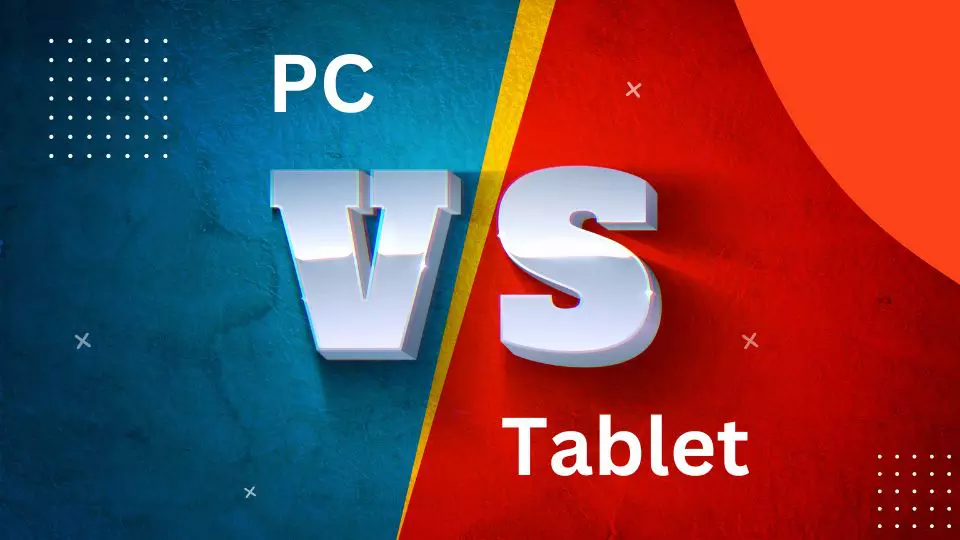PC vs. Tablet: Three Important Differences to Consider
Choosing between a PC and a tablet can be difficult. Both devices have distinct features and benefits that address different user requirements. Here, we look at three key differences to help you make an informed selection.
1. Performance and Power:
PCs, especially desktops and gaming laptops, offer high processing power and customization choices. They are frequently outfitted with high-performance processors, greater RAM capacities, and dedicated graphics cards. This makes them perfect for computing-intensive jobs like video editing, gaming, and software development.
Tablet: In contrast, tablets value portability and convenience over raw power. While high-end versions have adequate processors and RAM, they are not often intended for demanding activities. Tablets excel at common tasks such as web surfing, video streaming, and light multitasking.
2. Operating System and Software:
PCs employ fully-fledged operating systems such as Windows, macOS, or Linux, providing users with extensive software alternatives. This adaptability enables a wide range of capabilities, from professional-grade apps to gaming platforms. PCs also work with a wide variety of hardware peripherals.
Tablet: Tablets frequently run mobile operating systems such as iOS or Android, which are designed to improve the user experience for touch interfaces. The app shops for mobile systems offer a variety of programs, but they lack the depth and sophistication of PC software. Tablets, on the other hand, are designed to fit seamlessly into the mobile ecosystem, making them perfect for casual use.
3. Form Factor and Portability:
One major distinction between a PC and a tablet is portability. While laptops have some movement, desktops are immobile. PCs are often heavier due to their form factor, making them unsuitable for mobile use. However, their larger screens, keyboards, and mouse improve productivity for extended use.
Tablets are developed with portability in mind. They are light, slim, and easy to transport. This makes them suitable for people who frequently travel or need to work while on the go. The touchscreen interface is easy to use, but the lack of a physical keyboard may make continuous typing difficult.
What to do next?
The decision between a PC and a tablet ultimately boils down to how you want to utilize the device. PCs provide greater performance, versatile software options, and extensive functionality, making them perfect for both professional and recreational purposes. Tablets, on the other hand, are portable, simple, and integrate seamlessly into the mobile ecosystem, making them ideal for casual users and travelers. Assess your needs and preferences to determine which device is best for you.

